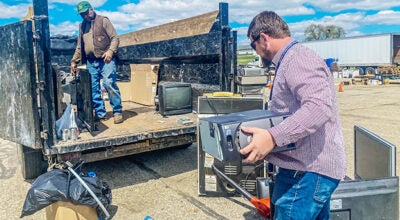Niles Housing Commission 50th in state to adopt smoke-free policy
Published 5:56 pm Wednesday, November 24, 2010
The Niles Housing Commission took a few steps toward its goal of being a smoke-free environment by 2012.
The commission’s board of directors voted unanimously last week to adopt a smoke-free policy for all its properties.
Executive Director Mary Ann Bush said going smoke-free is an issue the Department of Housing and Urban Development (HUD) had been encouraging public housing associations to do for some time.
“HUD has been kind of urging us to do that,” board chairman David Van Strien said.
All indoor and outdoor common areas will be smoke-free effective Jan. 1, 2011. All indoor and outdoor areas, including living units, will be totally smoke-free as of Jan. 1, 2012.
This means all 179 units owned by the Niles Housing Commission will be completely smoke-free in about 13 months including the 129 units in the Niles high-rise and 50 scattered site homes.
Bush said there were two areas of focus on behalf of the commission when it came to the issue, the first being the obvious health benefits to non-smokers.
The commission’s policy states: “Numerous studies have found that tobacco smoke is a major contributor to indoor air pollutions, and that breathing secondhand smoke (also known as environmental tobacco smoke) is a cause of disease in healthy non-smokers, including heart disease, stroke, respiratory disease and lung cancer. The National Cancer Institute determined in 1999 that secondhand smoke is responsible for the early deaths of approximately 53,000 Americans annually.”
But there are also added cost benefits to the commission.
“We started to look at the expense to turn a unit from a smoker to a non-smoker,” Bush said.
The amount seems to almost double. Bush estimates a cost of $1,200 to rehab an apartment after a non-smoking resident moved out. That amount doubles for smokers, costing anywhere between $2,200 and $2,400. For homes, the cost is between $1,800 and $2,200 to rehab a home of a non-smoking resident and anywhere between $3,500 and $4,400 for smoking residents.
Response from residents has been mixed.
“Some of them are upset, needless to say,” Van Strien said. “But I think probably (there are) a lot more who support it than are upset about it.”
Members of the board heard from residents prior to voting, he added.
“What I have heard from those who don’t smoke,” Bush said, “they’re actually clapping.”
Smokers, however, were speculative and voiced concerns about their rights and even questioned whether a non-smoking board was now making rules for smoking residents, she said.
Bush said three of the board’s members are actually smokers and concerns were addressed with residents privately, including the possibility of restrictions under HUD guidelines.
Though the commission does not question whether or not residents smoke, she estimated 31 out of 180 residents are smokers.
Niles’ decision is a milestone in Michigan, as the city’s commission becomes the 50th local housing commission in the state to adopt a smoke-free policy.
Nationally, about 225 local housing authorities have adopted smoke-free policies for some or all their residential units.






